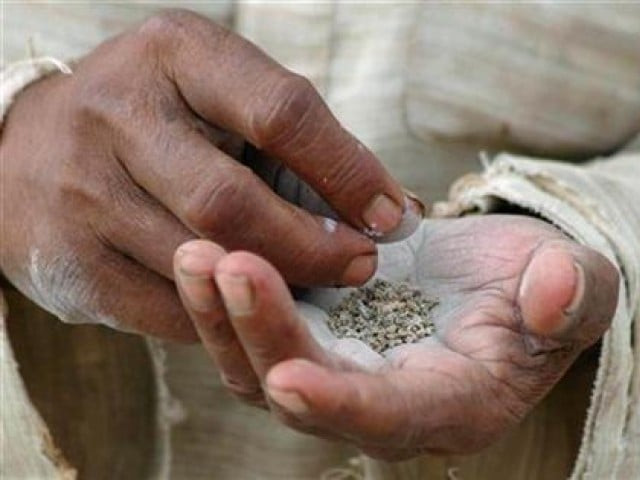SHC asks provincial govt to legislate, implement food law on gutka, mainpuri
Court orders ban on sale of tobacco pan masala for human consumption

However, simultaneously, it hoped that the legislature will appreciate the gravity of the issue while enacting the law with proper punishments. The court also ordered a ban on the sale for human consumption of tobacco pan masala, which consists of betel nuts, slaked lime and tobacco among other substances.
The bench, comprising Justice Salahuddin Panhwar and Justice Fahim Ahmed Siddiqui, last heard the case of two identical petitions on September 28 and reserved the order. The first petition was filed by Jalil Ahmed, who owned a gutka factory and demanded protection from police harassment. The second petition was filed by Rights Now Pakistan, a non-profit organisation of Advocate Ali Palh, which prayed for a complete ban on all these products.
Chewing tobacco might soon be banned across Sindh
The court referred to the August 10, 2017 report of the Public Analystm Food Analysis Laboratory, Hyderabad, which declared ingredients of mainpuri and gutka non-food items. "These are all injurious to [human] health. Hence, the samples don't recommend human consumption within the meaning of Section (5) of the Pure Food Ordinance, 1960 and also contravene Sindh Pure Foods Rules, 1965."
The judges observed that the food laws are being violated with impunity in connivance with the police and due to the ignorance or lack of interest of the local authorities. They added that the federal and Sindh governments have failed to address the problem by means of legislation and its enforcement.
The order also noted that the pleadings and documents produced by the intervenor, JA Chaliya Masala, show that the entire business of manufacturing, storage and sale is being carried out without a licence.
Court pleaded to put an end to gutka, liquor trade
"There is no guarantee that the sachet [of mainpuri, gutka and tobacco pan masala] will not have fungus, silica or coliform bacteria and there is no date of manufacture or expiry [written] on the sachets."
The court described itself as a direct custodian of fundamental rights and stated that on this basis, they can issue directions to the government. "The continuous failure of the state to do what otherwise is the unavoidable duty of the state can't be left to go unattended. The legislation may well be the function of the legislature alone but when the situation requires, necessary instructions can be issued by this court in exercise of its writ."
The bench gave the reference of a 1989 judgment in Sharf Faridi versus the federation cases to substantiate its assertion for the legislation and enforcement measures. "... but in my [court's] view, a direction can be issued to the federal and provincial governments to initiate legislative measures for bringing the existing laws in conformity with the above articles 175 and 203 of the Constitution."
1,108 suspects detained in anti-gutka operation
In the judgment, the SHC recommended making the manufacture and sale of these items a cognisable offence. "... so that such evil, causing prejudice to the nation as a whole, may not earn their liberty by claiming offences bailable or non-cognisable."
On October 18, Pakistan Peoples Party MPA Rubina Qaimkhani submitted a private bill in the Sindh Assembly, proposing that the manufacture and sale of these items should be made a non-bailable and cognisable offence.
The SHC disposed of the petitions, ordering the local government secretary to ensure 'true enforcement' of the Pure Food Ordinance, 1960, appoint food inspectors and establish food analysis labs. It also directed the chief secretary and law secretary to process the enactment of a law and asked the divisional commissioners to continue the crackdown against manufacturers and sellers of these items.



















COMMENTS
Comments are moderated and generally will be posted if they are on-topic and not abusive.
For more information, please see our Comments FAQ